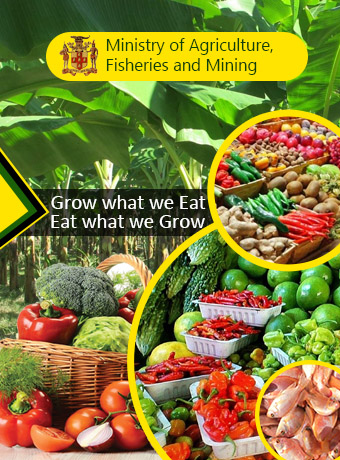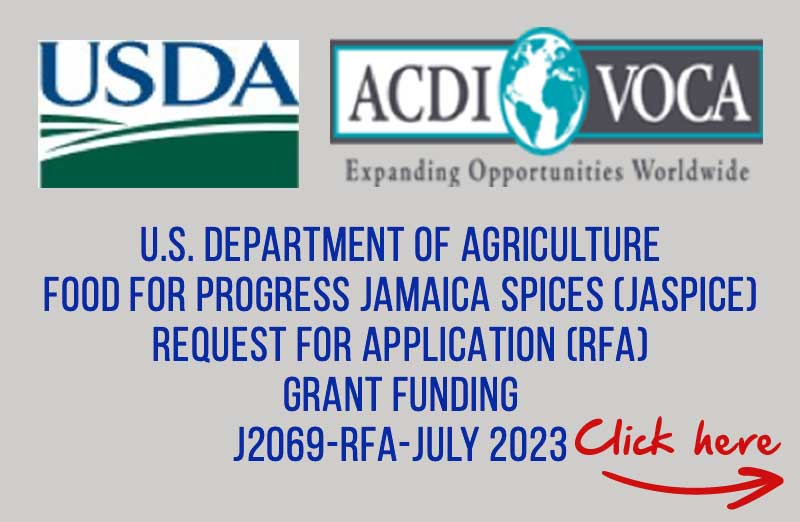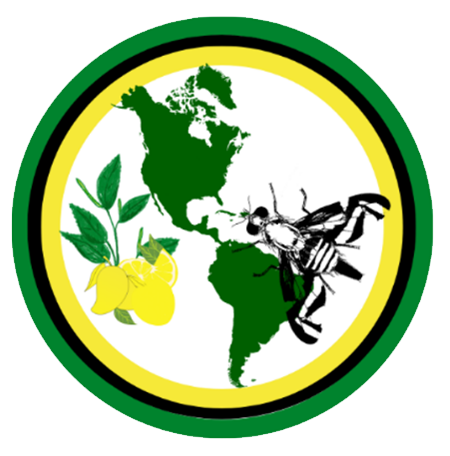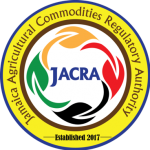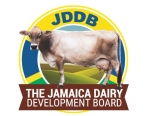
Statement by the Hon Pearnel Charles Jr, MP
Minister of Agriculture and Fisheries
Response to Increases in Poultry Meat
January 2022
_________________________________________________________
Madam Speaker,
Poultry production locally has grown exponentially in Jamaica over the past three decades supported by a duty regime which facilitates local expansion. The broiler companies currently produce approximately 60 per cent of total poultry with the remaining being supplied by backyard farmers. Broiler companies have been able to successfully utilise their advantageous market position to create fully vertically integrated industries that are highly profitable.
Notwithstanding this, the global pandemic has been challenging. The Ministry has been in constant dialogue with these companies to navigate these challenging times to mitigate the negative impact of price increases for raw material inputs.
Background
The Agriculture sector has not been spared the negative impacts of COVID-19 pandemic, with pervasive logistics challenges within the global trade for commodities that have resulted in severe supply chain bottlenecks and delays.
These supply chain disruptions are coupled with labour shortages, increased costs for transportation, packaging materials, grains, feed and, of course, baby chicks. This is the reality we face.
It is important to note also that roughly 75 per cent of the eggs used to provide baby chicks for the industry are imported, with Jamaica Broilers being the only broiler company with a local hatchery that produces approximately 40 per cent of their fertile egg needs. This situation has now resulted in individual and contract farmers finding it increasingly difficult to source baby chicks for both their broiler and layer operations.
The aforementioned challenges have given rise to unprecedented increases in prices locally for animal protein, especially poultry products, with the price of locally produced chicken meat increasing by approximately 17 per cent over the last 12 months, moving from an average of $530 per kilogramme to just under $620 per kilogramme currently.
Madam Speaker, it is instructive to mention that chicken meat is one of the most versatile and affordable proteins, especially for the most vulnerable in our society, and any increase in the prices paid for the inputs that go into the productive process will invariably be passed on to consumers.
This situation is further compounded by the fact that there has been a decrease in the import of chicken back, a critical source of affordable protein especially for persons who have limited disposable income. This shortage of supplies has resulted in the price for chicken backs now competing with the whole chicken.
Madam Speaker, the reality is that in most countries the demand for raw material inputs, food and finished goods have surged ahead of the available supply. Additionally, importers have reported that transshipment charges for freight have risen in excess of 300 per cent, in some cases moving from US$3,000 to US$11,000. This has also impacted the price and availability of substitute products such as turkey necks, chicken feet, chicken necks and offal (the internal organs of the animal used as food). Other fluctuations including the rising cost of fuel have contributed significantly to the erosion of many Jamaicans’ purchasing power relative to 2019.
Mitigation efforts
Let me assure our farmers and consumers that the Ministry of Agriculture and Fisheries has taken this situation seriously and we have been in dialogue with the relevant stakeholders in the poultry industry with a view towards implementing strategies to reduce the level of increase that is passed on to consumers.
We are aware that these issues, if not addressed, could lead to further increases for poultry products. As a result, the Ministry is exploring several practical solutions within the short to medium term to mitigate further increases and to work with all stakeholders to continue to ensure the sustainability of our food supply.
Madam Speaker, our responsibility to the Jamaican consumers requires us to take steps, if necessary, to ensure the availability of affordable and nutritious protein and we will not hesitate to act expeditiously to put measures in place.
Short to medium-term term solutions
● Madam Speaker, in order to keep pace with the increased demand by our consumers and to provide some reprieve to our farmers, the Ministry has been actively seeking more affordable market options for inputs such as baby chicks and fertile eggs that can meet regulatory requirements and bring down the prices for our local farmers. This move will invariably redound to the benefit of all consumers.
● Madam Speaker, in order to provide Jamaican consumers with an affordable alternative source of protein, one of the options being considered is the temporary suspension of the import (CET) and additional stamp duties (ASD) levied on leg quarters. Currently, the price of leg quarters within the local market is at $360 per pound while we would be able to import leg quarters at $100 per pound and have consumers paying roughly $160 per pound. This would allow Jamaican consumers to purchase at least three times the quantity of poultry meat than they are currently able to afford. Leg quarters are readily available at more competitive prices than other chicken parts currently being utilized.
Let me emphasise that this would be a temporary measure until the local market recalibrates to normal levels where supply matches demand as was successfully done before when the country faced a similar crisis.
· Madam Speaker, the world is feeling the impact of the pandemic, including our Jamaican households and so we have a responsibility to do everything that is necessary to ease that burden. For that reason, the Ministry is executing a robust programme to promote the consumption of alternatives to poultry ensuring Jamaicans have a range of options and adequate supplies of affordable protein. We are pursuing increased and efficient production of small ruminants, fish and pigs, which, we believe, will serve to reduce the current demand for poultry.
· Additionally, our food bill already includes commodities which are affordable sources of proteins like canned fish, beef, chicken and pork. These, too, can be utilised and prepared in many different creative ways to allow consumers to have an ample supply and range of protein in their diets.
Madam Speaker, for several reasons, the local environment has become increasingly difficult as it relates to the supply of baby chicks to farmers. This shortage negatively impacts our farmers’ ability to expand production. Also, several households have been impacted by the obstruction in the supply chain of baby chicks to farmers. This is a vexing issue, particularly for small chicken farmers and householders who, during this pandemic, have seen this production opportunity as a means to supplement their families’ income and diet.
The Ministry will do all it can to create the environment where competition drives the market to redound positively, to the benefit of farmers and, by extension, the sector.
Every challenge creates and opportunity and today, I am sending a message to all interested parties that we will be facilitating the entry of investors willing to take up the business opportunity to supply the local market with baby chicks.
· Likewise, the Ministry will be examining mechanisms and incentives to make the sector more attractive for investors to invest in local processing and growing of birds.
· Madam Speaker, if anything else, the pandemic has taught us the importance of self-sufficiency and the need to develop ways to be sustainable.
And so as we seek to identify sources of low-cost feed for our poultry farmers we have also mandated our Research and Development Division to carry out investigations in conjunction with private stakeholders to identify opportunities and develop formulae of feeds that will possibly be cheaper and utilize our local raw materials as alternatives, supplements or replacements.
Critical to achieving the aforementioned, is for research to enable the identification of ways to utilise our local assets, identify supplies from other jurisdictions, discuss with regional and international partners where we can get the best quality at the most affordable cost and investing, in the long term, in Jamaica’s potential to develop its own products that will not only assist us but open export opportunities regionally and internationally.
· Finally, in order to ramp up production locally, the Ministry will also seek to encourage competition within the poultry sector by incentivizing the investment in local processing facilities for new entrants.
Madam Speaker, now more than ever, food security is of critical importance, given the complications of global shipping brought about by COVID-19. We expect that the current phenomenon can reoccur in the future. Therefore, steps will be taken to ensure Jamaica is prepared in relation to our food security, should there be a repeat.
We have heard the complaints of our farmers regarding increased prices in fertilizers and inability to secure baby chicks among other things. It is for this reason that I am taking steps to immediately assist our farmers and provide well needed relief in these most challenging times.
The Ministry in an effort to bolster the production of the local poultry sector has set aside $50 million to be made immediately available to assist with the purchase of feed, chicks and medication for our farmers through the Rural Agricultural Development Authority (RADA), as they continue to ensure our food security.
Madam Speaker, in short order we will address the issue relating to fertilizer, another critical ingredient in the production process.
We remain committed to engaging relevant stakeholders, both public and private, in pursuing these options to ensure that we Jamaica will remain a food-secure nation.
I thank you!
January 25, 2022
